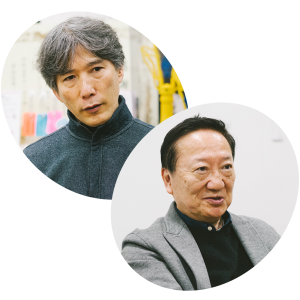2024年のスタートにあたり、これまでの歩みも踏まえながら、渋谷未来デザインの現在地と目指すべき場所について、代表理事で東京大学教授の小泉さん、理事で渋谷区商店会連合会会長の大西さんにお話をうかがいました。
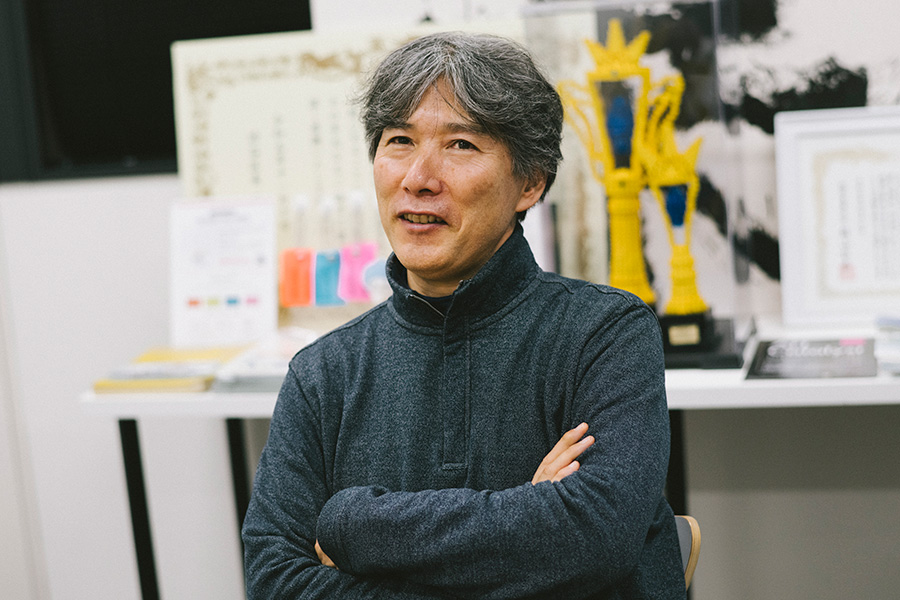
—— まずはこれまでの活動を振り返って、渋谷未来デザイン(以下、FDS)の存在意義を感じることができた事例というのはありますか?
小泉 いくつかあるんですけれど、ひとつは創造文化都市事業です。都市開発や地価の上昇によって、渋谷の文化的な施設などが残れなくなってきているという課題があるなかで、それをうまく残そうとする仕組みができつつあるというのは、FDSの具体的な成果だと思っています。
もうひとつは、コロナ禍に入って緊急対応が必要になったときに、非常に臨機応変に対応できたことですね。例えば「バーチャル渋谷」を早々に立ち上げることができたとか、クラウドファンディングで、渋谷の、特に小規模事業者さんのサポートをすることができたり、オンライン教育を渋谷区の教育委員会と組んで実施できたことなど、コロナ禍に突入した直後のリアクションとして速やかに新しい取り組みを実施できたと思います。
また、毎年開催してきた「SOCIAL INNOVATION WEEK」(SIW)もだんだんと認知度が高くなってきていて、いろんな方に登壇いただき、そこから実践的な取り組みも生まれてきています。SIWというものが、渋谷の街やそこに集ってくれる方々の価値をうまく表現する場に成長しつつあるのかなと思います。
大西 今まさに100年に一度という渋谷駅前の大工事の最中でもありますが、従来の街づくりというと、建物や空間の開発に携わる方々が、ぞれぞれ個々に議論をしていた傾向があると思います。しかし、地域の商店街であったり、住民の方たちを含めて横断的に声を拾っていける立場としてFDSが立ち上がって、渋谷のいろんな企業や団体とともに街づくりを進めていけるようになってきたことはとても意義深いと思っています。
コロナ禍においても、小泉先生がおっしゃったように、渋谷に関わるいろんな分野の方々とコミュニケーションをとることができましたよね。そういったことについては、まだまだこれからもっと、いい意味で変化していけるのではないかとも考えています。
私は商店街の立場から、生きた声をFDSに届けることがもっとできると思いますし、それはFDSに関わっていてよかったなと思えるところでもありますね。
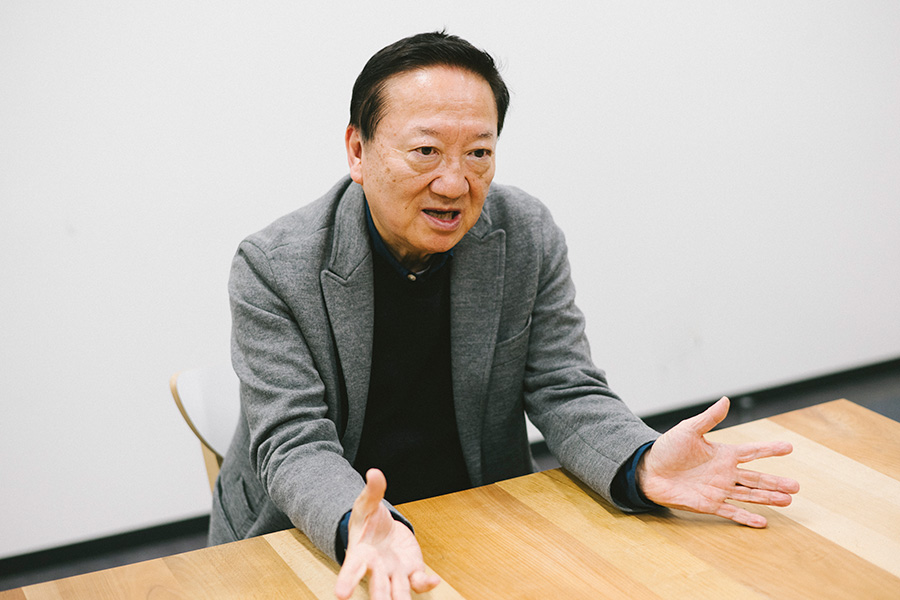
——変化ということでいうと、設立当初に考えていたFDSの役割というものが、時間や経験を経て変わってきた部分などはあるのでしょうか?
小泉 まず設立当初の想定からお話しすると……、渋谷区は、駅周辺だけでなく渋谷区全体として、いろいろな特性を持ったストリートを大切にした街づくりをずっとやってきました。ストリートといっても多様で、渋谷には商業地だけでなく住宅地——それも神宮前のような都会的なところもあれば、笹塚のようなほっとするような街もあって、多様な人たちが集えるというのが渋谷の良さのひとつですよね。そんな渋谷の街づくりを、行政が直接コーディネートして進めるという建て付けではなくて、FDSのような中間的な組織が間に入ることによって、行政もひとつのプレイヤーとして位置付け直すことができる。それによって多様な立場の人たちがフラットな関係になっていける。そういった共創型のプロジェクトを実施していくことによって、新しい都市のあり方、新しい渋谷のあり方を探求するということが、FDSのいちばんのミッションだったと思うんですよね。
その意味では、これまで企業や区、あるいは商店街の皆さんなどと力を合わせて、ある程度探求することができてきているんじゃないかと思っています。
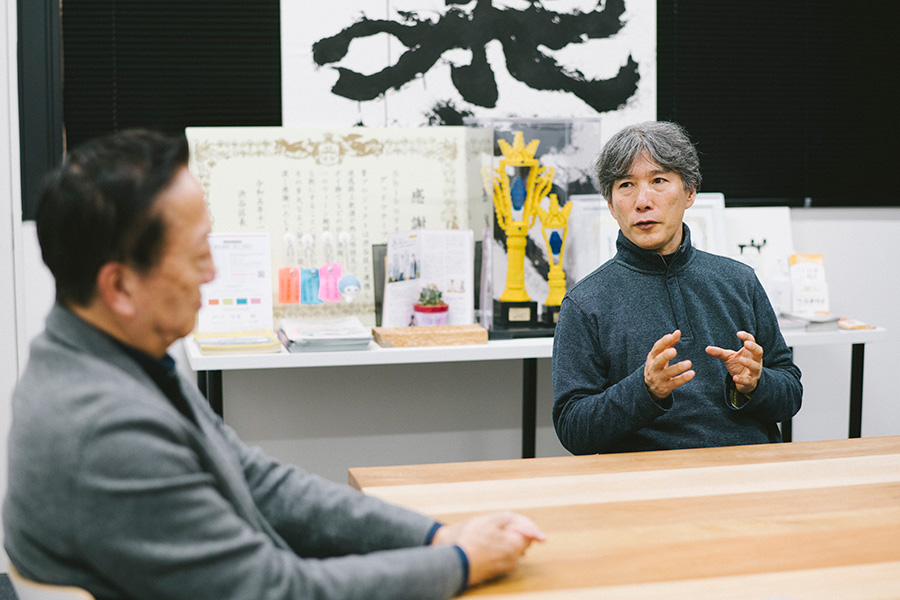
小泉 そこからFDSの役割がどう変化してきたか——というよりもこれは今後の課題と言えるのかもしれないですが、もちろん大西さんおっしゃるように、我々も地域の方や商店街の方とお付き合いが無いわけではないですが、そうした方々とより共創的なアプローチで、もっと皆さんに何かを還元できるようなプロジェクトをやっていく必要があると感じています。
やっぱり地域の方とのお付き合いというのは、時間をかけて信頼関係を作りながら、その上で継続的に、一緒により良い地域のあり方を考えたり、そこに向けて具体的な取り組みを行なっていくもので、企業との取り組みと同じようなアプローチだけではなかなか難しいものですよね。FDSとしてはもう少しそのあたりの役割を、今もやっていないわけではないのですが、さらに加えていく必要があるのかなと思っています。
——では2024年、比較的短期的な視点でみて、いまFDSに必要なことはどんなことでしょう?
大西 コロナも終息して、2023年の渋谷のインバウンド訪問客は大きく伸びました。また都内でも新宿、銀座を抜いて一番の訪問先になっていて、2024年もこの傾向は続くでしょう。いま、数字としては多くの観光客の皆さんに来ていただいているので、それをきちんと受け入れて、満足してもらうことが重要です。FDSのような組織が先頭に立って、渋谷の街の先駆性や、渋谷らしい驚き、そういったものがきちんと伝わるアクションを起こしていけるといいですね。
街でなにか物事を起こすというのは、街が元気なときじゃないとできないというようなことも多いと思うんです。いま渋谷は、いい意味でとても注目されているからこそ、失敗を恐れずに大胆なアイデアやアクションをFDSから打ち出していけるといいなと思います。
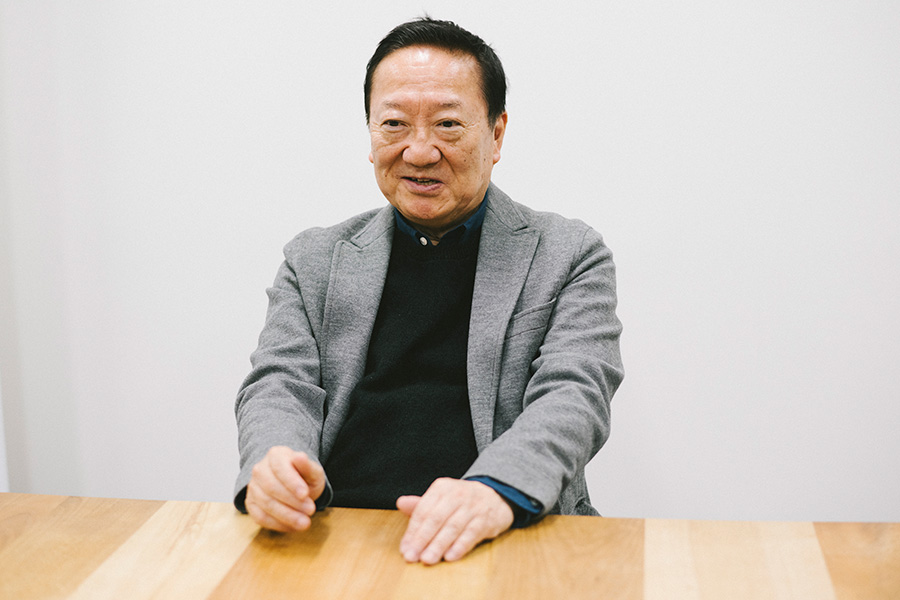
小泉 すごく大事なポイントですね。もちろんそういう面からもFDSがリーダーシップをとっていくことは重要だと思っていますが、ちょっと視点を変えると、そういった渋谷のローカリティも大事にしながら、一方で、先端的な未来の都市、持続可能な都市のあり方というのをグローバルな視点からも探っていくような、両側から攻めることが必要だと感じます。ネイバーフッドレベルの課題について、地球レベルの課題を踏まえながら、両側から考えていくような活動ができるといいですね。地球市民的な観点からの話は、抽象論としては分かるけれども、地域で暮らしてる人たちの生活からすれば、やっぱり渋谷という場所の個性とともに暮らしていて、その個性を活かしていくことで、例えば地球温暖化や脱炭素の問題、少子高齢化の問題などにうまく対応していけるような取り組みをFDSがコーディネートしていければ。
ローカルの魅力を大切にしながら、あるいは渋谷に集ってくれる方々の個性を大切にしながら、グローバルイシューに目を向けて、両方の接合点を探る。そうやって非常に大きな課題とローカルな個性をミックスアップして、新しい渋谷の街のあり方、あたらしい都市像を探求していく取り組みを、あらためて始められるような一年であるといいですね。



